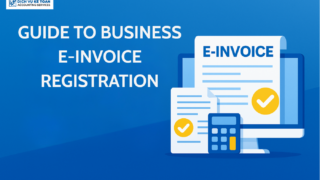Understand the non-cash payment requirements to claim VAT deduction and avoid losing deductible expenses. In Vietnam, non-cash payment is mandatory for VAT deduction. Using invalid payment methods may lead to rejected VAT deduction, increasing business costs and tax risks.
Non-Cash Payment Requirements for VAT Deduction in Vietnam
In business operations, input VAT deduction is a key tax benefit for enterprises. However, to claim this deduction lawfully, companies must strictly follow regulations on payment methods.
From 2025, non-cash payments become mandatory in many transactions to enhance transparency, prevent fraud, and reduce risks in tax administration.
Key Regulations Effective from 2025
Under Article 14(2) of the 2024 VAT Law (Law No. 48/2024/QH15), all payments for goods and services must be made via non-cash methods—regardless of value—unless specified otherwise by the Government.
Decree 181/2025/NĐ‑CP, Article 26: Starting July 1, 2025, for purchases (including imports) valued at VND 5 million or more (incl. VAT), non-cash payment evidence is mandatory to claim input VAT deduction.
Accepted Non-Cash Payment Methods

- Bank transfer from an account under the company’s or a legally related party’s name
- Legal electronic payment platforms (MoMo, Zalo Pay, Shopee Pay, Viettel Money, etc.)
- Debt offsetting: with documented contracts and mutual confirmation of balances
- Third-party authorized payment: requires a formal authorization agreement and evidence of payment
- Barter or obligation offset: must have exchange contracts, valuation records, and both parties’ invoices
Common Errors That Lead to VAT Deduction Denial

1. Cash payments exceeding permitted limits
Even with valid invoices, if payment is made in cash for purchases totaling VND 5 million or more in a day from one supplier, VAT cannot be deducted.
2. Payments from personal accounts
Transfers from personal accounts, even those of company directors or staff, are not accepted for deduction purposes.
3. Cash deposits into seller’s bank account
According to VAT Law 2024, only interbank transfers or valid electronic means are considered non-cash. Direct cash deposits are excluded.
Compliance with non-cash payment regulations for VAT deduction is not just a legal obligation—it’s a key risk management practice. As 2025 approaches, businesses should standardize payment procedures and documentation to avoid tax disputes and optimize deductions.
For any inquiries, contact Wacontre Accounting Services via Hotline: (028) 3820 1213 or email info@wacontre.com for prompt assistance. With a team of experienced professionals, Wacontre is committed to providing dedicated and efficient service. (For Japanese clients, please contact Hotline: (050) 5534 5505).






